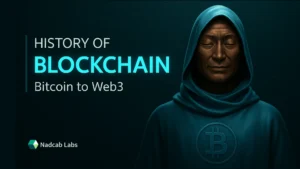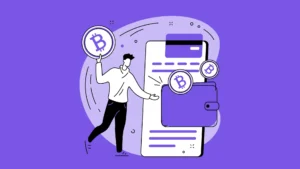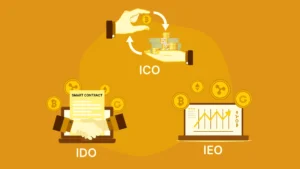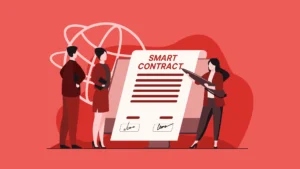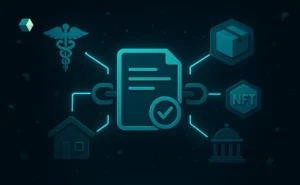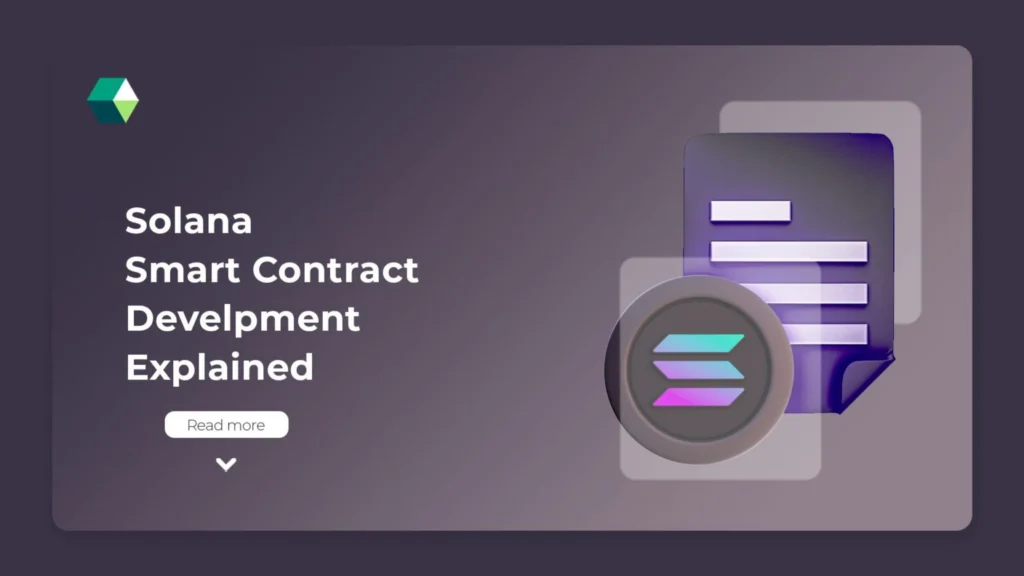
Why Solana Smart Contracts Matter Today
Blockchain technology has moved far beyond digital currencies. Today, it powers decentralized finance, NFTs, gaming, and real-world applications through smart contracts. Among several blockchain networks, Solana has positioned itself as one of the fastest and most efficient platforms for deploying smart contracts.
To understand why Solana is gaining such momentum, it’s important to explore what Solana is, how its smart contracts work, where they are applied, and the industries they are transforming.
The Foundation of Solana’s Speed and Scalability
Solana is a high speed blockchain network designed for scalability and affordability. Launched in 2017 by Anatoly Yakovenko, it introduced an innovative system called Proof of History (PoH) combined with Proof of Stake (PoS).
Solana’s architecture enables ultra-fast processing of over 65,000 TPS while maintaining negligible transaction costs. For developers and businesses, this speed means building applications that are responsive, cost-effective, and ready for global adoption.
What is a Smart Contract?
Smart contracts are coded agreements that run on blockchain and trigger actions once conditions are satisfied. Unlike traditional contracts that need human approval or third-party verification, smart contracts work without intermediaries.
Example:
- When a user buys an NFT, ownership is instantly transferred once payment is confirmed.
- When goods are delivered, payment can be automatically released without banks or middlemen.
Smart contracts bring transparency, automation, and security, which makes them a key driver of the decentralized economy.
What is a Solana Smart Contract?
Solana calls its smart contracts ‘programs’ within its blockchain ecosystem. These programs use Solana’s Sealevel runtime, which allows thousands of contracts to run in parallel.
This is a major improvement over Ethereum, where most contracts are processed one at a time, leading to slower speeds and higher costs. By running contracts simultaneously, Solana blockchain development ensures high efficiency and scalability.
Developers usually write Solana contracts in Rust, C, or C++, giving them more flexibility and performance control compared to Solidity-based networks.
Why Choose Solana for Smart Contracts?
There are several reasons why Solana stands out as a preferred choice for building decentralized applications:
- High Throughput – 65,000+ TPS makes it suitable for high-demand applications.
- Ultra-Low Fees – Transaction costs are often less than $0.01.
- Eco-Friendly – Solana consumes significantly less energy compared to Proof-of-Work blockchains.
- Developer Flexibility – Rust and C provide more powerful tools for complex applications.
- Thriving Ecosystem – Solana hosts successful projects like Serum, Magic Eden, and Star Atlas.
Industries That Can Benefit from Solana Smart Contracts
Finance & DeFi
Solana enables fast, low-cost financial solutions like lending, borrowing, and stablecoins, removing intermediaries and making DeFi accessible at scale.
- Example: Serum DEX is built on Solana, facilitating near-instant trading without intermediaries.
Gaming & Metaverse
High-speed smart contracts make Solana ideal for NFTs, in-game assets, and play-to-earn models. Players enjoy smooth experiences without network delays.
- Example: Star Atlas uses Solana to power its metaverse economy.
Real Estate
Tokenized property ownership and automated rental agreements are possible with Solana smart contracts. This increases transparency and reduces fraud.
- Example: A project like Parcl enables fractional real estate investments on Solana.
Healthcare
Smart contracts automate insurance claims and secure patient records. Solana ensures fast data validation and prevents tampering.
- Example: A Solana-based health platform can instantly verify prescriptions and claims.
Supply Chain Management
From manufacturing to delivery, every stage can be tracked using Solana smart contracts. This helps reduce counterfeit products and ensures accountability.
- Example: A food company can use Solana to trace produce from farm to store.
Media & Entertainment
Artists can protect ownership, automate royalties, and sell NFT-based tickets via Solana contracts. It removes middlemen and ensures fair earnings.
- Example: Audius, a music streaming platform, relies on Solana to ensure quick and transparent payments.
Global Outlook on Solana Smart Contracts Market Size
The global smart contracts market is growing fast. In 2023, it was around $15 billion and is expected to reach $20 billion in 2024. By 2025, it could hit $2.69 billion, with Solana gaining popularity for its speed and low fees. Analysts expect the market to expand to $12.07 billion in 2026, showing strong potential for Solana solutions worldwide.
The global smart contracts market has been experiencing significant growth:
- 2023: Valued at approximately $15 billion .
- 2024: Expected to surpass $20 billion .
- 2025: Projected to reach $2.69 billion .
- 2026: Estimated to grow to $12.07 billion .
Solana’s Share in the Global Market:
- 2023: Held approximately 12% of Ethereum’s market cap.
- 2024: Increased to 25% of Ethereum’s market cap .
- 2025: Continued growth, with Solana accounting for 81% of all decentralized exchange (DEX) transactions across the crypto industry in 2024 .
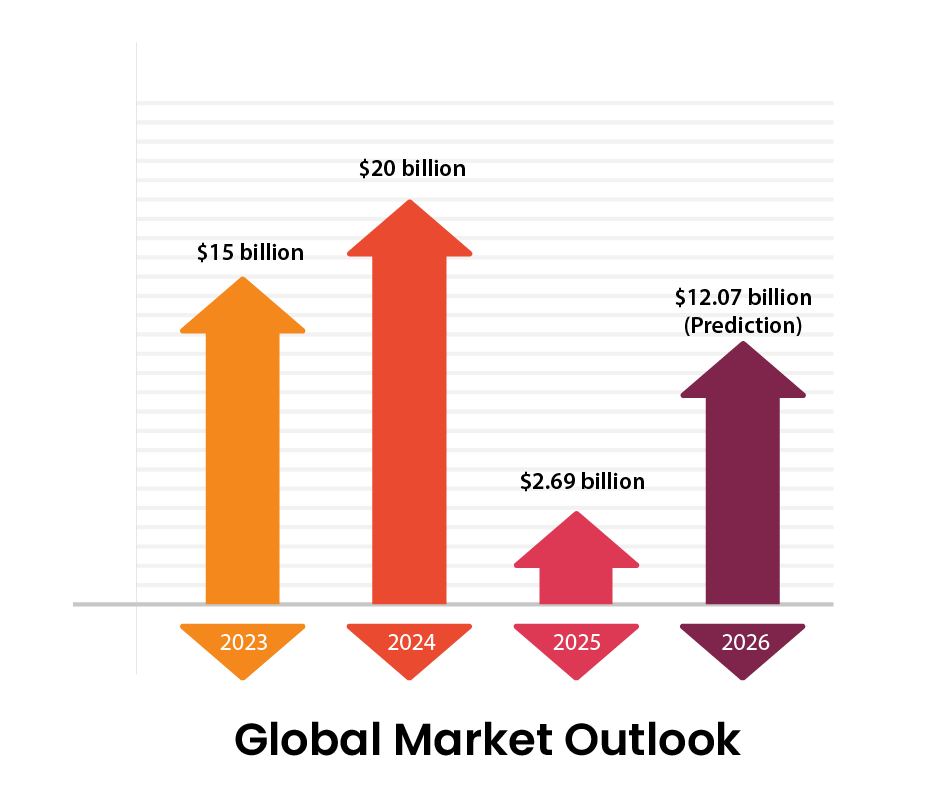
Indian Market
India’s blockchain ecosystem is also poised for significant expansion. The market size for blockchain technologies in India was approximately $321.5 million in 2023, and it is expected to grow to $656.99 million in 2024, driven by increased government initiatives, startup activity, and digital payment adoption. By 2025, the market could reach $2.2 billion, with Solana smart contracts playing a key role in tokenized assets, gaming, and supply chain applications. Assuming continued growth and adoption, India’s smart contract market could expand to $29.2 billion by 2026, positioning Solana as a leading platform in the country’s digital transformation journey.
Indian Market Outlook
India’s blockchain technology market is poised for rapid expansion:
- 2023: Estimated at $321.5 million .
- 2024: Projected to reach $656.99 million .
- 2025: Expected to grow to $2.2 billion .
- 2026: Anticipated to reach $29.2 billion .
Solana’s Position in the Indian Market:
- 2023: Solana’s market share in India was approximately 12%.
- 2024: Increased to 25%.
- 2025: Continued growth, with Solana accounting for 81% of all DEX transactions across the crypto industry in 2024 .
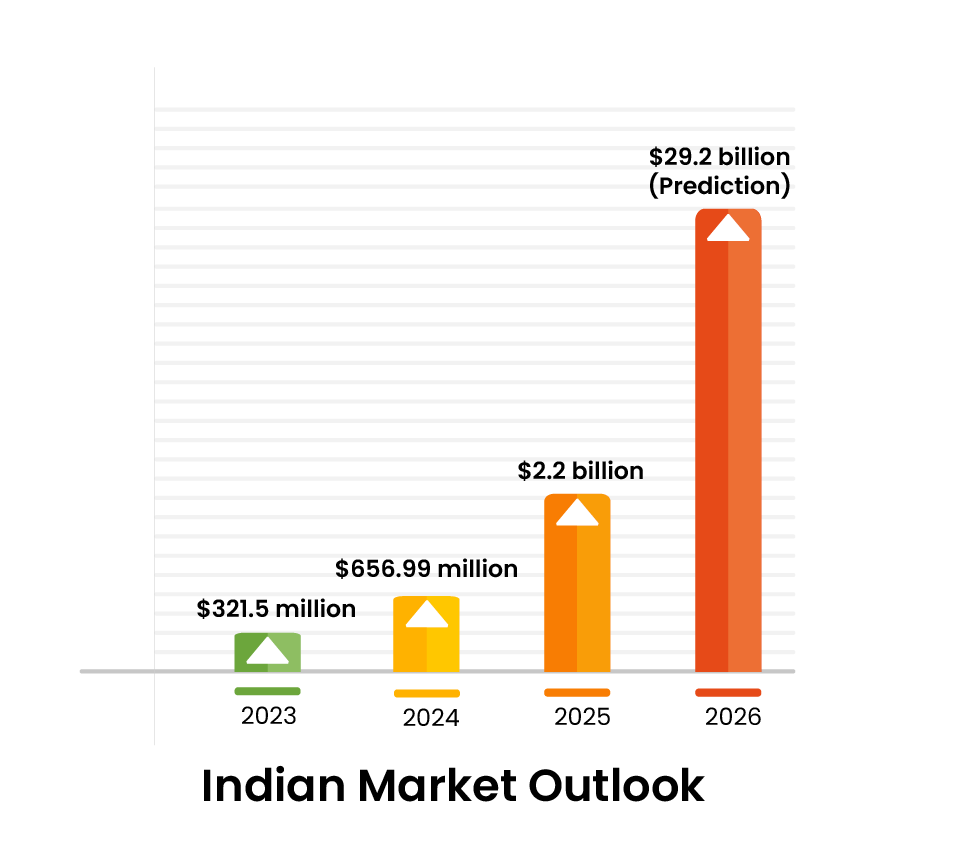
Real-World Applications of Solana Smart Contracts
Solana’s smart contract ecosystem is being actively utilized across multiple sectors, demonstrating the platform’s speed and low transaction costs. Some key examples of real-world applications include:
- Decentralized Trading Platforms – Solana enables decentralized exchanges that process transactions rapidly with minimal fees, providing an alternative to traditional trading systems.
- Liquidity and Market-Making Tools – Automated liquidity providers on Solana facilitate smooth asset swaps and maintain market stability, enhancing decentralized finance (DeFi) operations.
- NFT Marketplaces – Platforms for creating, buying, and selling digital collectibles leverage Solana’s fast processing to reduce costs and improve user experience.
- Blockchain-Based Gaming – Virtual worlds and games utilize Solana smart contracts to manage in-game assets, economies, and player interactions securely on-chain.
- Decentralized Media Platforms – Music and content streaming applications use Solana to improve performance, decentralization, and transparency compared to conventional platforms.
These use cases highlight how Solana smart contracts are being adopted in practical ways, spanning finance, gaming, digital art, and media.
Trends and Future Scope of Solana Smart Contracts
- DeFi Growth – Solana is set to support increasingly sophisticated decentralized finance applications.
- NFT Evolution – NFT applications are expanding past collectibles into real estate, gaming, and personal identification.
- Web3 Gaming – With high TPS, Solana is becoming a backbone for immersive blockchain-based games.
- Cross-Border Payments – Faster settlements for remittances and global transactions.
- Enterprise Solutions – Supply chain, fintech, and logistics will see more adoption of Solana smart contracts.
The combination of parallel processing, low cost, and scalability positions Solana as a long-term competitor to Ethereum.
Nadcab Labs – Solana Smart Contract Solutions
Nadcab Labs is a trusted name in blockchain solutions with expertise in building secure and scalable Solana smart contracts.
Our Solana services include:
- Custom Solana Smart Contract Solutions
- Solana Smart Contract Architecture Design
- Solana Smart Contract Audit
- Solana Smart Contract Integration
- Solana Smart Contract Optimization
We help startups and enterprises unlock the potential of Solana by delivering high performance blockchain applications personalized to their needs
Build Secure Apps with Solana Smart Contracts
Solana has redefined with its unmatched speed, scalability, and affordability. From powering decentralized finance to enabling next-generation gaming and NFTs, it offers solutions that are practical and future-ready.
As industries worldwide and in India continue to explore blockchain adoption, Solana smart contracts are set to play a central role. With the expertise of companies like Nadcab Labs, businesses can confidently build innovative, secure, and scalable applications on Solana.

